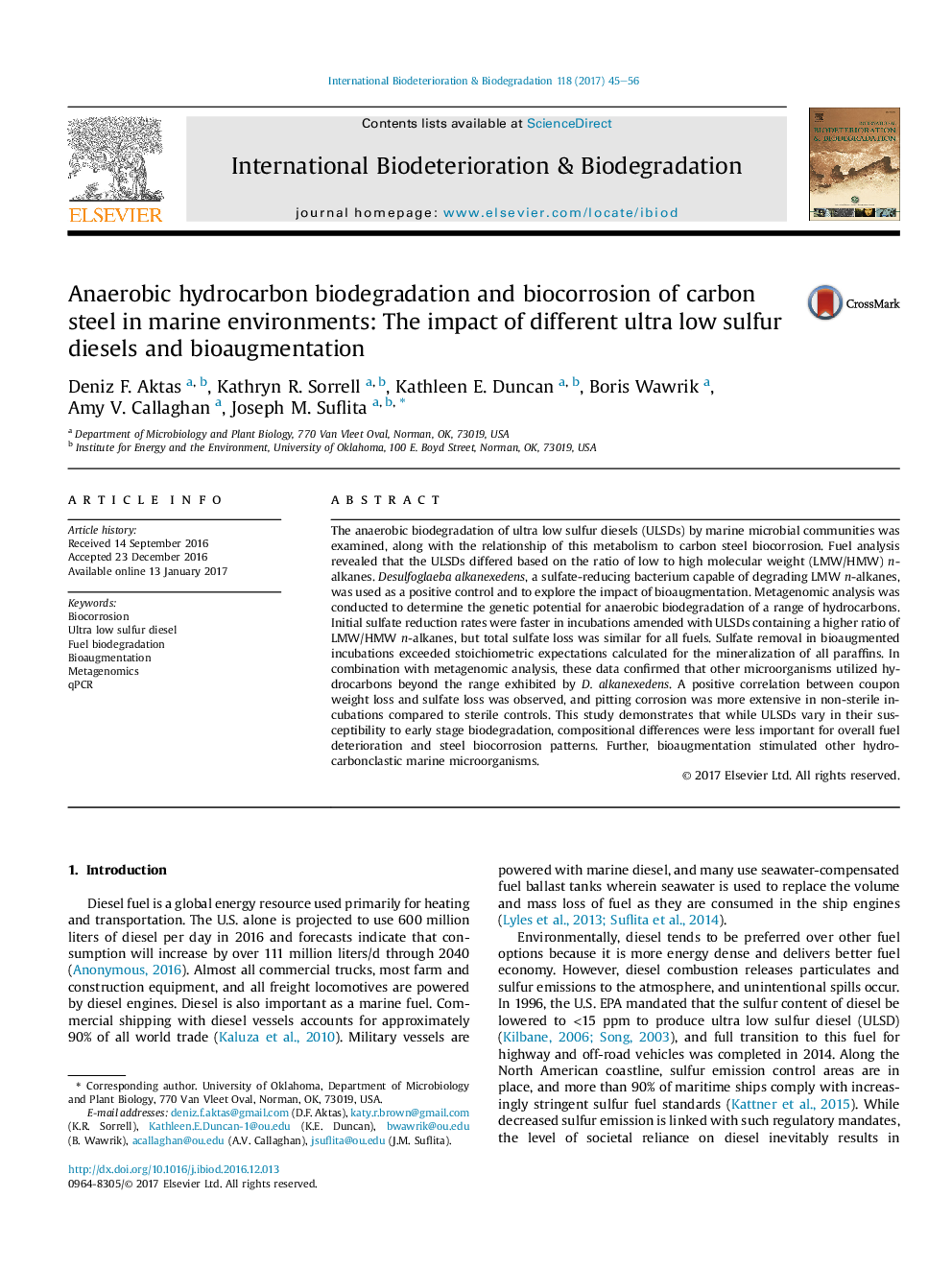| کد مقاله | کد نشریه | سال انتشار | مقاله انگلیسی | نسخه تمام متن |
|---|---|---|---|---|
| 5740547 | 1616299 | 2017 | 12 صفحه PDF | دانلود رایگان |
- ULSDs varied in susceptibility to early stage biodegradation depending on the low to high molecular weight n-alkane ratio.
- Compositional differences far less important in longer incubations; all fuels increased sulfate reduction and biocorrosion.
- A hydrocarbon-degrading inoculum persisted in fuel-amended incubations, but was rapidly removed in fuel-unamended controls.
- Metagenomic analysis showed that the bioaugmented inoculum stimulated other hydrocarbon-degrading marine microorganisms.
The anaerobic biodegradation of ultra low sulfur diesels (ULSDs) by marine microbial communities was examined, along with the relationship of this metabolism to carbon steel biocorrosion. Fuel analysis revealed that the ULSDs differed based on the ratio of low to high molecular weight (LMW/HMW) n-alkanes. Desulfoglaeba alkanexedens, a sulfate-reducing bacterium capable of degrading LMW n-alkanes, was used as a positive control and to explore the impact of bioaugmentation. Metagenomic analysis was conducted to determine the genetic potential for anaerobic biodegradation of a range of hydrocarbons. Initial sulfate reduction rates were faster in incubations amended with ULSDs containing a higher ratio of LMW/HMW n-alkanes, but total sulfate loss was similar for all fuels. Sulfate removal in bioaugmented incubations exceeded stoichiometric expectations calculated for the mineralization of all paraffins. In combination with metagenomic analysis, these data confirmed that other microorganisms utilized hydrocarbons beyond the range exhibited by D. alkanexedens. A positive correlation between coupon weight loss and sulfate loss was observed, and pitting corrosion was more extensive in non-sterile incubations compared to sterile controls. This study demonstrates that while ULSDs vary in their susceptibility to early stage biodegradation, compositional differences were less important for overall fuel deterioration and steel biocorrosion patterns. Further, bioaugmentation stimulated other hydrocarbonclastic marine microorganisms.
201
Journal: International Biodeterioration & Biodegradation - Volume 118, March 2017, Pages 45-56
